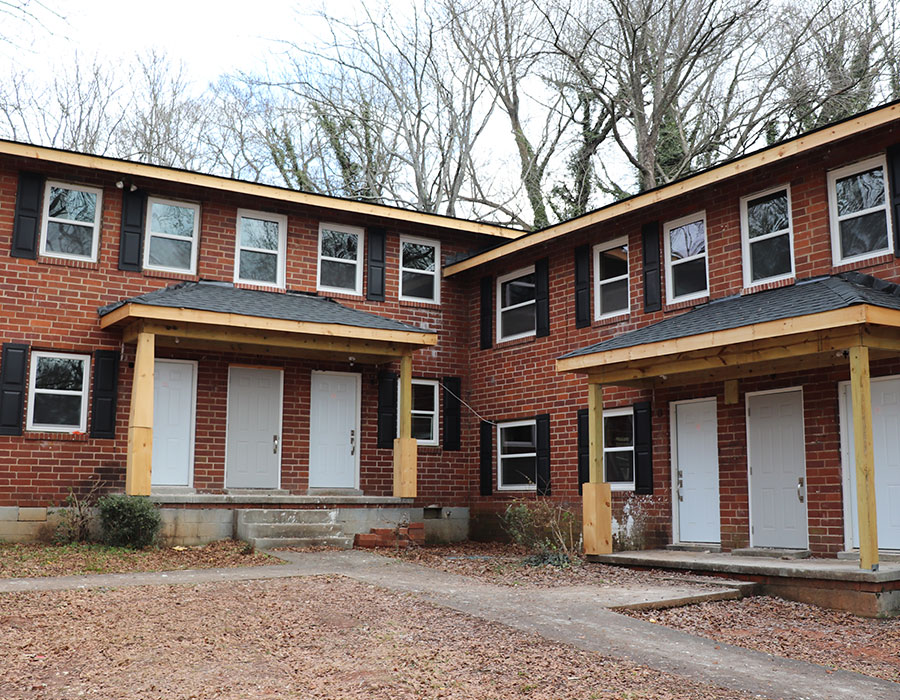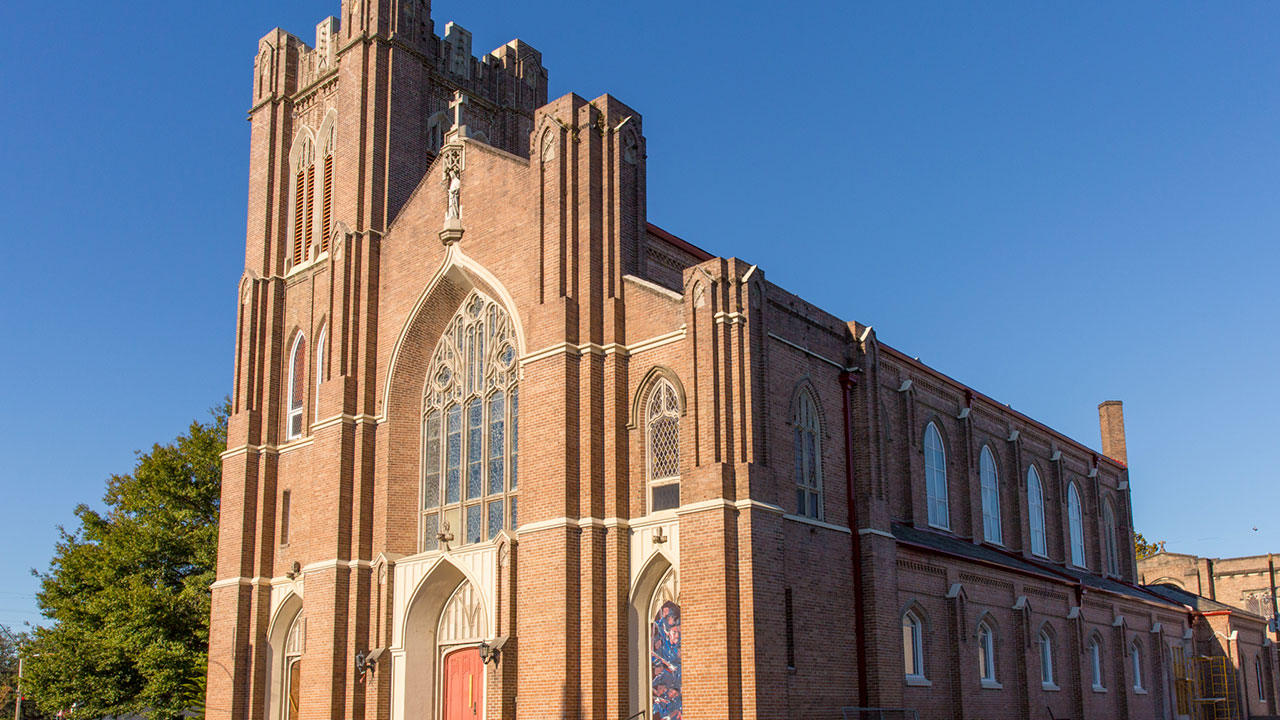Expanding High-Quality Early Childhood Education
Building on our groundbreaking work in Philadelphia with the Fund for Quality, in 2017, Reinvestment Fund launched two new initiatives that will support quality early learning opportunities for low-income families in Atlanta, GA, and Washington, D.C.
In Atlanta, we partnered with the Georgia Early Education Alliance for Ready Students to launch the Atlanta Child Care and Early Learning Supply Status Map (ATL ACCESS Map)—a new tool that illustrates the early learning landscape in metro Atlanta. ATL ACCESS Map models the supply and demand for child care in the region and identifies places where care is most scarce and investments most needed. The data show that across the five-county metro region (Fulton, DeKalb, Clayton, Cobb, and Gwinnett Counties), approximately 1/3 of demand for child care is not currently being met. This effort was also supported by Learn4Life and the Metro Atlanta Chamber and grant funded by the Richard W. Goldman Family Foundation and JPMorgan Chase Foundation.
In Washington, D.C., working with the Bainum Family Foundation, we have completed a supply/demand analysis for child care and launched a new fund to expand infant and toddler care in Wards 7 and 8. The Early Learning Quality Fund is built on the findings of our analysis and will create 625 high-quality early childhood education opportunities in areas identified as high need.
Together, CDFIs Help Veteran-Owned Grocery Stores Open in Six States

Honor Capital, a veteran-owned small business, doubled its size in 2017 thanks to a multi-million-dollar financing package provided by a partnership of three CDFIs—Reinvestment Fund, Enterprise Community Partners, and IFF.
By the end of the year, Honor Capital operated 10 Save-A-Lot grocery stores serving low-income communities in or adjacent to USDA low-income, low-access areas in six states. We are all members of the ReFresh collaborative, and were able to collectively pool resources through the federal Healthy Food Financing Initiative to make the project feasible and support so many stores in high-need markets.
Founded in 2014 by a group of post-9/11 veterans, Honor Capital has a dual mission to promote veteran entrepreneurship and improve access to healthy food in underserved communities.
Located in both rural and urban areas, the Honor Capital stores are expected to serve nearly 40,000 low-income households and employ over 270 people in communities with unemployment rates as high as 18%.
Action
We bring collaborators and investors together to create solutions that address the challenges facing vulnerable populations.
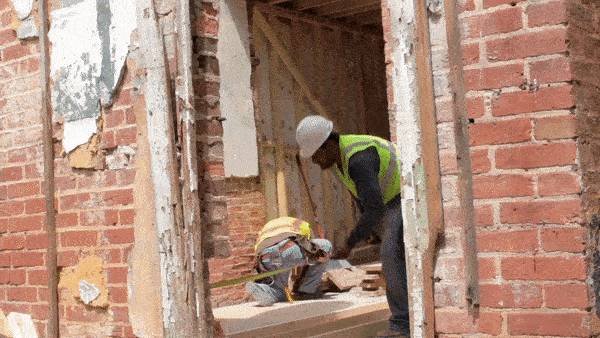
New Initiatives Support Minority and Women Entrepreneurs

The U.S. Minority Business Development Agency estimates that the country’s 8 million minority-owned firms contributed $1.4 trillion in revenue and 7.2 million jobs to the economy in 2012.
While this is significant, it’s only a third of the revenue and employment that minority businesses could represent—if there were successful entrepreneurship parity between communities of color and majority communities. Reinvestment Fund invested in two programs in the past year that will provide small business loans to support racial equity in entrepreneurship.
Nile River Capital is an initiative of Urban Advisors to support small contractors and disadvantaged businesses, including minority and women entrepreneurs. Nile River Capital provides investments that address the financial challenges faced by small businesses and minority entrepreneurs, primarily in the construction trades. The initiative is also supported by Heron Foundation and Knight Foundation.
In New Orleans, Reinvestment Fund joined Living Cities to invest in the Propeller Social Venture Fund. This initiative of the Foundation for Louisiana provides mentoring, training, and access to affordable capital for small businesses and nonprofits in southeastern Louisiana. The Fund will also be open to small businesses participating in Propeller’s business accelerator program for entrepreneurs of color located in New Orleans’ South Broad business corridor. This fund targets entrepreneurs working to achieve scale in the areas of food security, educational equity, health care, and coastal restoration and urban water management.
Photo: Greg PeaseUnderstanding Evictions in Philadelphia
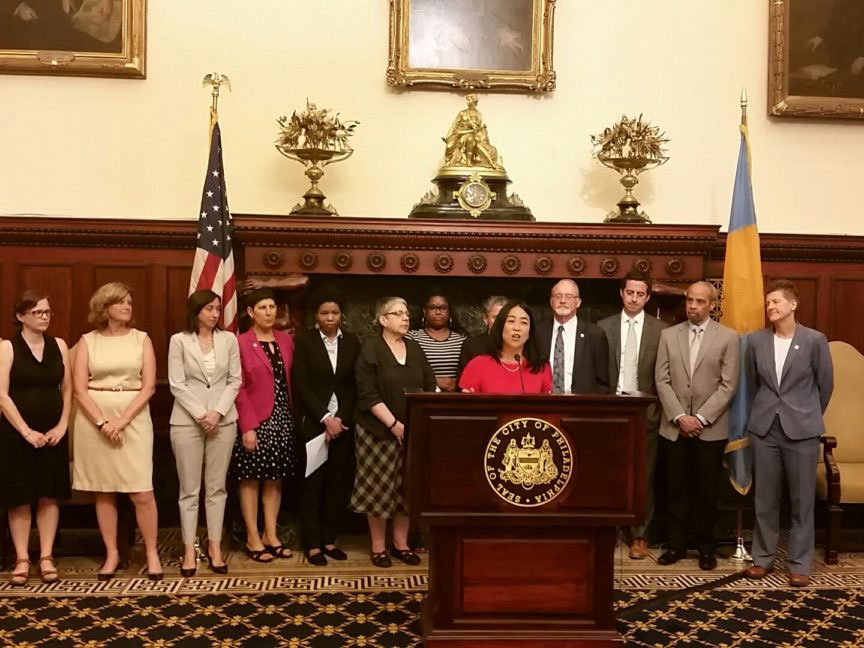
For over a decade, Reinvestment Fund has developed and refined highly-customized analyses to guide and improve public policy that affects the low-income communities we serve.
Last year, we sought to quantify and map the geography of evictions in Philadelphia, inspired by Matthew Desmond’s book, “Evicted: Poverty and Profit in the American City.” Our analysis found that 20,000 Philadelphia renters are evicted each year—that’s one in every 14 renters.
In majority Black neighborhoods, eviction rates were more than three times as high as predominantly White areas—even when those areas are comparable in terms of resident income and rates of renter occupancy. We testified before Philadelphia City Council about our findings, and in the summer of 2017, City Council allocated $500,000 to support renters in eviction proceedings, crediting our work as influential in that funding decision.
Reducing Barriers to Workforce Entry

Reinvestment Fund financing helped First Step Staffing, a nonprofit social enterprise based in Atlanta, GA, acquire a portion Philadelphia's On Time Staffing. The project forms a unique job training and placement program for homeless individuals and returning citizens.
“Our goal is to help thousands of Philadelphia’s most vulnerable citizens gain sustainable employment, and eventually, a permanent residence. We believe a steady and sustainable income is the only reliable path out of homelessness.”
In the first year, First Step expects to employ 500 homeless men and women in the Philadelphia area and grow to serve more than 1,000 within three years.
Other supporters include the Barra Foundation, the City of Philadelphia, Investors’ Circle, Nonprofit Finance Fund, Local Initiatives Support Corporation, and Philadelphia Industrial Development Corporation.
PolicyMap Now a Benefit Corp
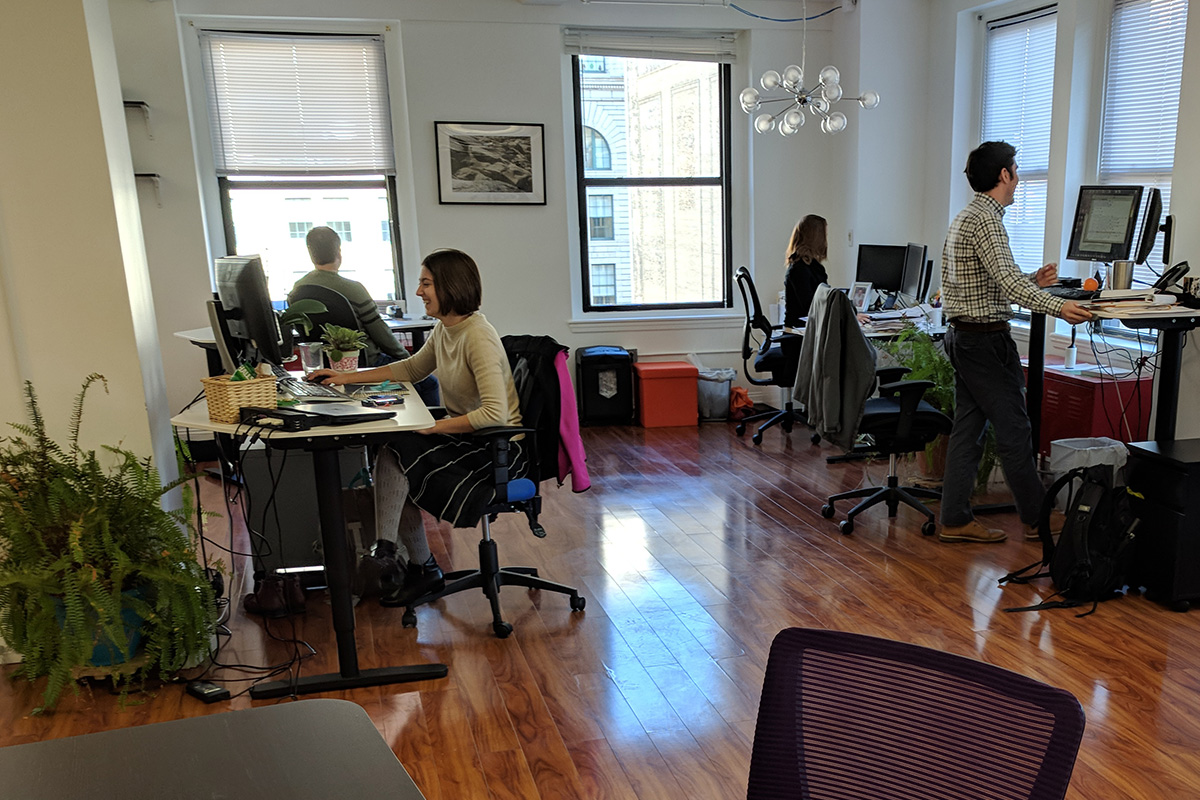
Ten years ago, Reinvestment Fund launched PolicyMap with just two staff and a dream to democratize data and make location intelligence widely available and accessible. We have been gratified by PolicyMap’s growth over the years–with its 60,000 users and database of more than 40,000 indicators–and are excited to see it incorporate this month as a benefit corporation.
Benefit corporations are for-profit companies that meet higher standards of social and environmental performance, public transparency, and legal accountability, and aspire to use the power of markets to solve society’s most challenging problems.
PolicyMap has always operated with a social purpose. Now as a for-profit benefit corporation, PolicyMap will continue to grow while enshrining the original public purpose for which it was created.
In Philadelphia, nonprofit Project HOME subscribes to PolicyMap to support its work to break the cycle of homelessness; national nonprofit Enterprise Community Partners used PolicyMap as the basis for its Opportunity360 platform; and USDA’s Rural Development Office partnered with PolicyMap in 2016 to help the agency address the growing opioid epidemic in rural America.
Impact
Low-income people and places have better access to the services and amenities they need to thrive.

Reinvestment Fund Recognized for Excellence in Impact Investing
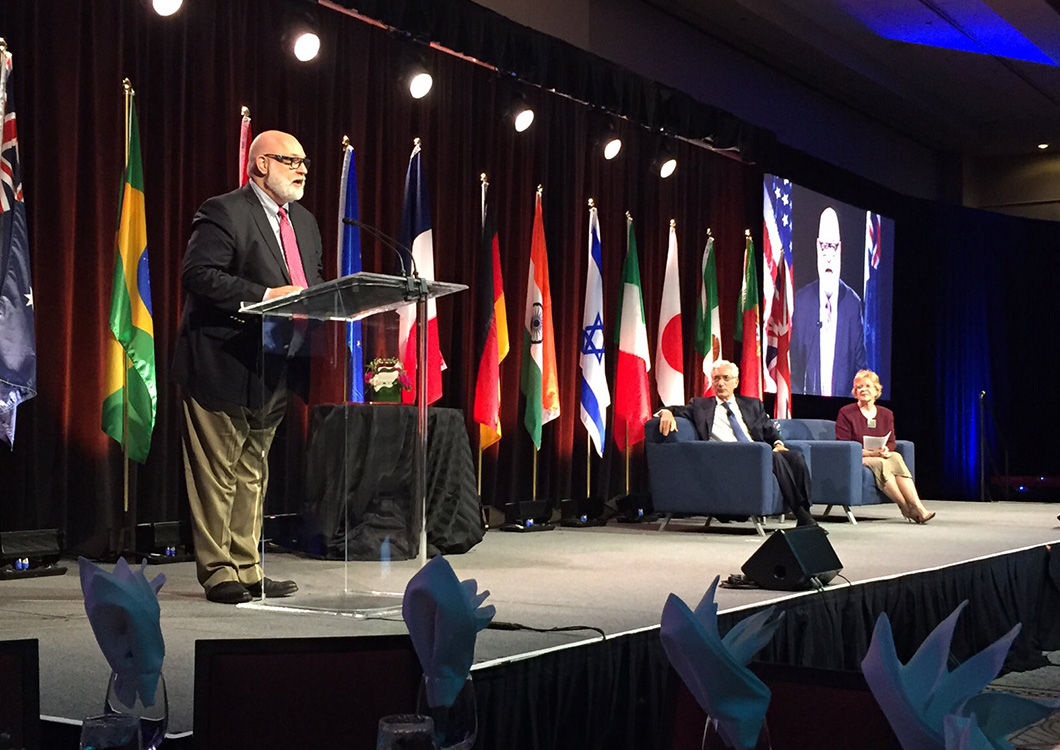
Last year, Reinvestment Fund became one of the first CDFIs to access the private capital markets through the issuance of $50 million in S&P rated general obligation bonds.
Reaching traditional capital markets in service of low-income communities won us the Global Impact Asset Manager of 2017 award from the Global Social Impact Investment Steering Group (GSG). This is an independent umbrella organization for nations working to catalyze impact investment and entrepreneurship to benefit people and the planet.
Bond proceeds are supporting small businesses, grocery stores, and early childhood education for low-income families in struggling communities, which also bring much needed jobs and local economic growth.
A Community Anchor Supports Arts, Culture and Education
Reinvestment Fund financing is redeveloping the iconic former St. Rose de Lima church building and two adjacent schoolhouses into a new cultural hub for the arts, education, and community in New Orleans.
When completed this year, the campus will house the acclaimed Southern Repertory Theatre, the Waldorf School of New Orleans, and office and co-working space targeting people in the creative industries and New Orleans’ burgeoning education sector. The transformed campus will advance New Orleans’ cultural economy by showcasing diverse local and regional theatre, incubating emerging theatre companies and professionals, and providing educational programming for youth and underserved populations. It will also create jobs and return of these long-vacant and deteriorating buildings to active use.
The intention is to create a neighborhood anchor that continues to spur additional arts and creative class investments along Bayou Road. The neighborhood is also part of the city’s Livable Claiborne Communities initiative, an ongoing multi-year effort to invest resources in its most culturally significant yet under-resourced areas.
Reinvestment Fund's financing includes capital from the Kresge Foundation specifically for creative placemaking projects.
Innovative Schools Create Opportunity for Low-Income Students

Reinvestment Fund financing supported eight K-12 schools in 2017. Among them is Mastery Schools of Camden in New Jersey, which operates a Renaissance School with five locations across in the city. Created by the Urban Hope Act, Renaissance Schools provide additional educational opportunities to students in chronically failing districts. In Camden, 97% of students qualify for free and reduced price lunch and, in 2014, the city was in the bottom 1% of districts statewide in both reading and math.
Mastery Charter Schools is a nationally recognized leader in school turnarounds; the financed renovations will significantly improve and expand the dilapidated former district school facilities that will ultimately serve 2,250 students from elementary school through high school.
We also financed Cristo Rey Philadelphia High School, an independent, Catholic, college preparatory school for students of all faiths who cannot otherwise afford a private education. The Cristo Rey Network includes 32 schools serving more than 10,000 low-income students across the country. Network-wide, students earn approximately $44 million by their own work to help pay for their education and 99% of graduates are accepted into colleges and graduate colleges, at twice the rate of their economic peers.










